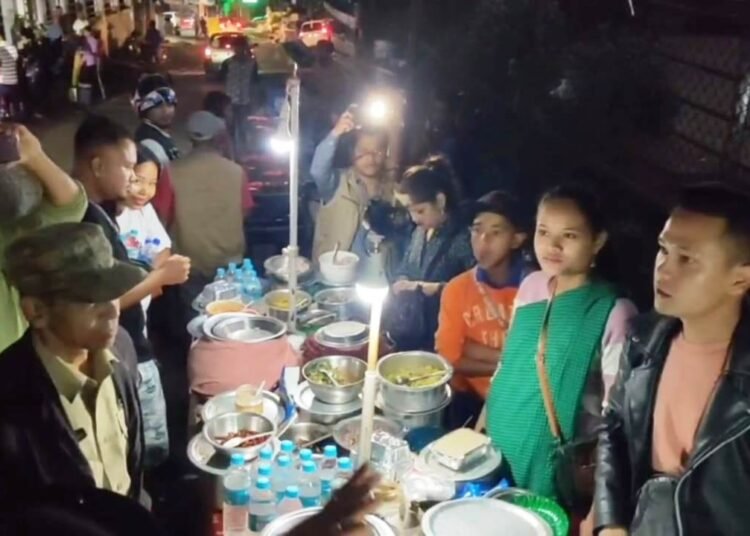The Provisional Town Vending Committee has asked all street vendors operating in areas within Shillong municipality to get themselves registered with the committee within 15 days.
The Chief Executive Officer (CEO) of Shillong Municipal Board is the chairperson of the Provisional Town Vending Committee.
In a press release issued here, the CEO said that that the survey, carried out in accordance with the Street Vendors (Protection of Livelihood and Regulation of Street Vending) Act 2014 and the Meghalaya Street Vendors (Protection of Livelihood and Regulation of Street Vending Schemes 2023), has been concluded.
“The list of the eligible vendors for registration is available for inspection at the office of the Chief Executive Officer, Shillong Municipal Board, and Shillong Municipal Board website (smb.gov.in). The list will also be displayed at prominent public offices of the State government,” the press release added.
It also said that all street vendors whose names appear on the list are required to report to the office of the Chairperson of the Town Vending Committee, Shillong, within a period of 15 days from May 31.
The registration process is aimed at streamlining the operations of street vendors in the city, while also ensuring their livelihood and rights are protected in accordance with the provisions of the Street Vendors Act.
Recently, Tourism Minister Paul Lyngdoh had said that the Town Vending Committees had completed the identification process for street vendors and the Shillong Municipal Board (SMB) is set to allot stalls to them within June.
He also said that the State government aims to relocate over 200 hawkers from Khyndai Lad market to the Meghalaya Urban Development Authority (MUDA) complex and other designated areas in order to decongest Khyndai Lad market.
According to Lyngdoh, around 200 street vendors from the Khyndai Lad area have voluntarily agreed to the government’s relocation plan. According to him, this initiative aims to provide them with designated spaces under one roof complete with essential facilities such as washrooms and water supply which they currently lack.
























